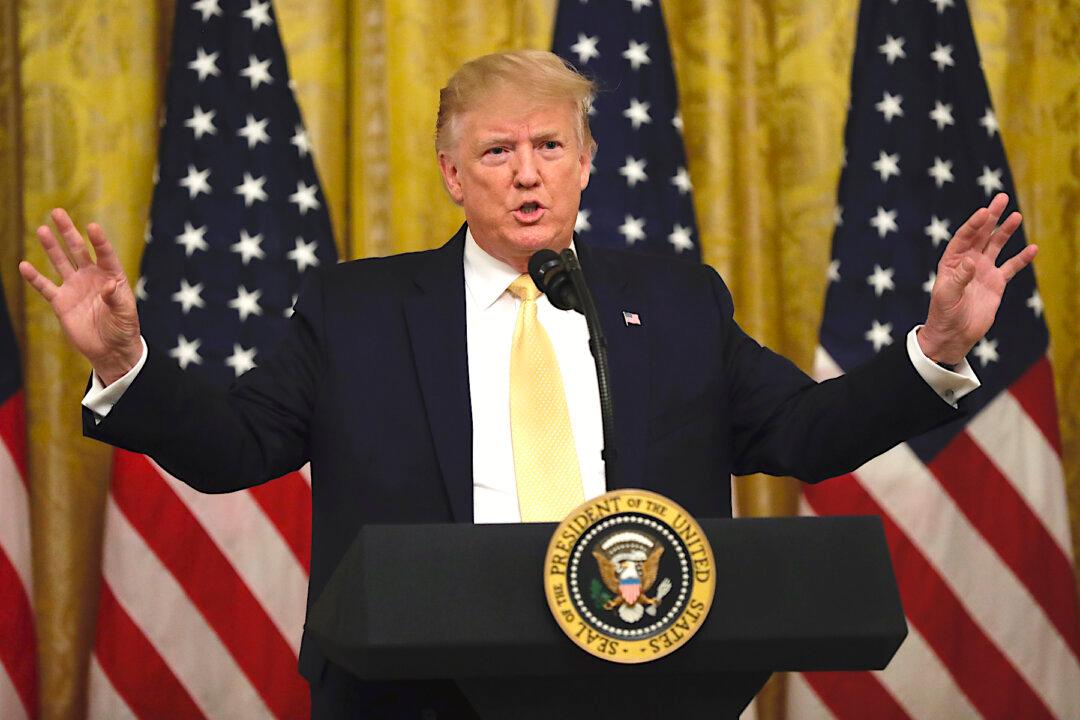President Trump has stood firm on comments in which he suggested some progressive congresswomen should go back to their “broken and crime infested” home countries, saying that their bad-mouthing of America could not go unchallenged.
Writing on Twitter late on July 14, Trump criticized Democrats for “sticking up for people who speak so badly of our country,” before later saying that the “radical left congresswomen” should apologize for their “foul language.”





